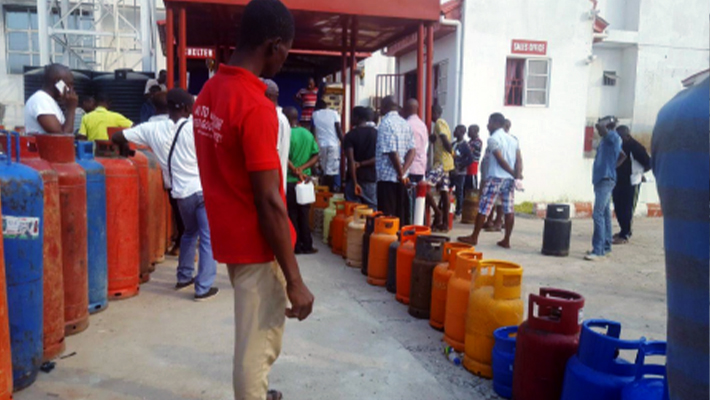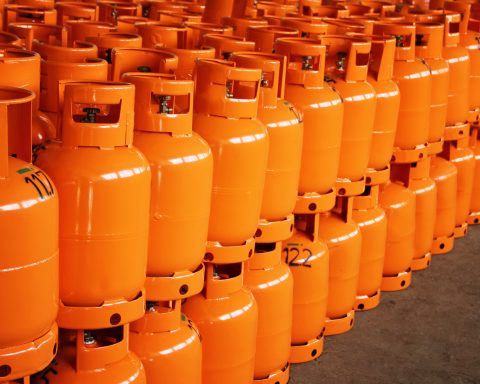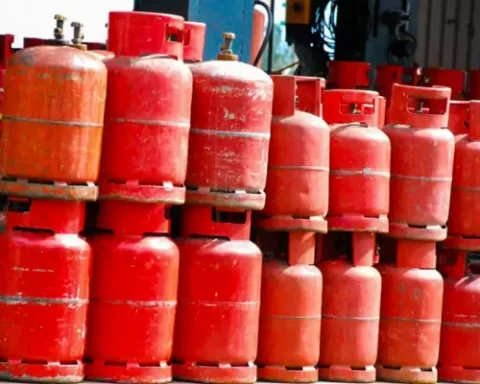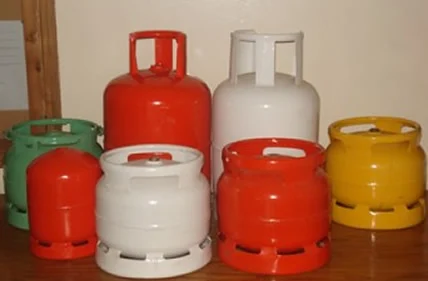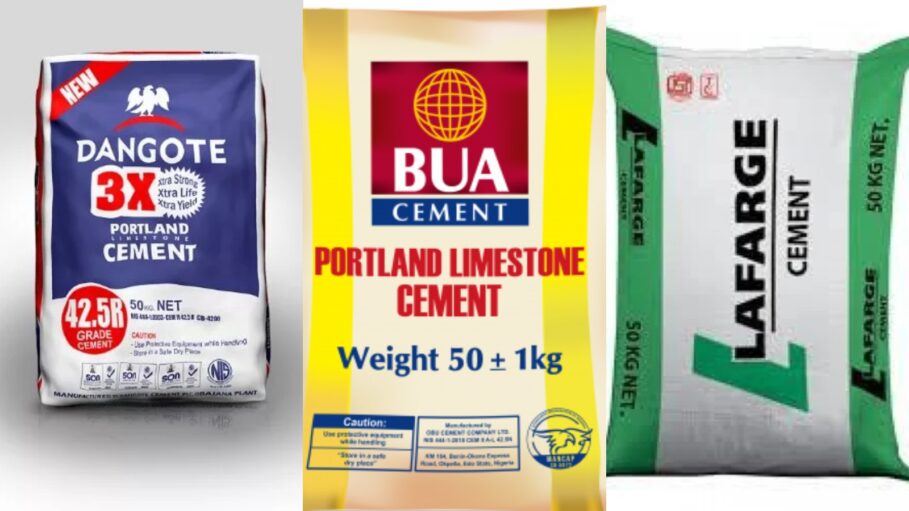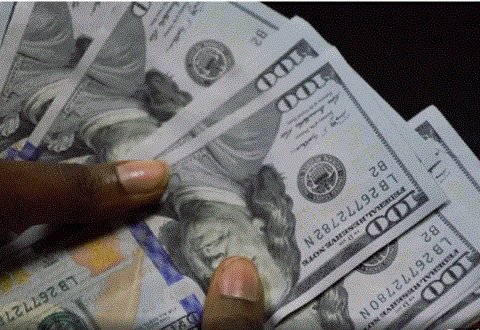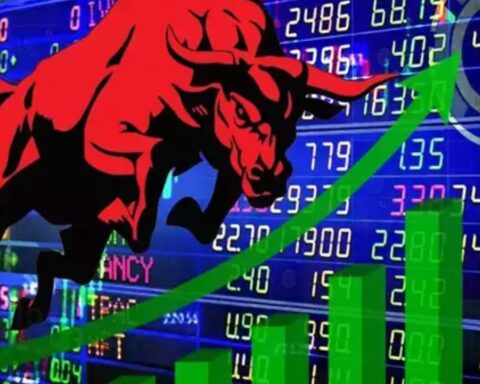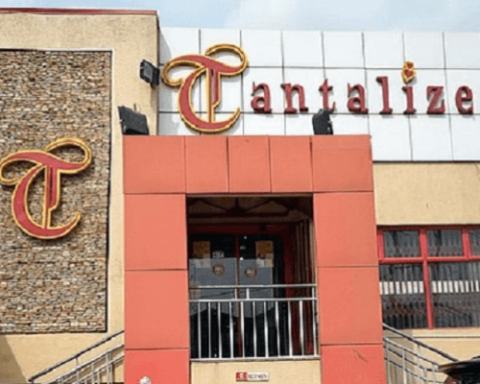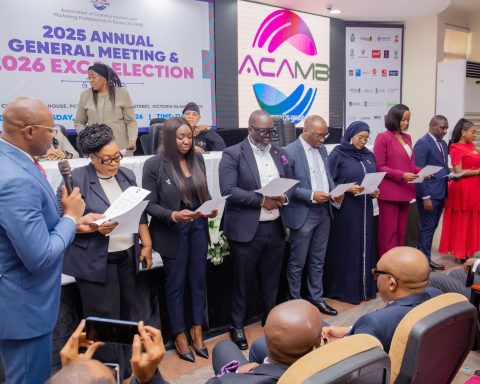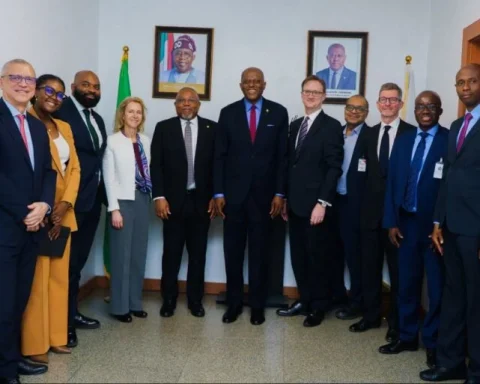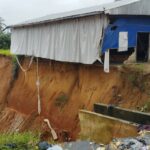Nigeria’s already struggling households are in for deeper hardship as Liquefied Petroleum Gas (LPG), also known as cooking gas, prices continue to surge, worsening inflation, hunger, and energy poverty.
The latest price hike of this essential commodity has forced many families to make difficult choices, which could be dangerous and unhealthy alternatives to cope, further straining living conditions.
Join our WhatsApp ChannelThe latest report from the National Bureau of Statistics (NBS) on LPG (Cooking Gas) Price Watch showed that the price of the commodity recorded a significant surge in April 2025.
The report said the average retail price for refilling a 5kg Cylinder of Cooking Gas increased by 7.69 per cent on a month-on-month basis from N7,322.49 recorded in March 2025 to N7,885.60 in April 2025.
On a year-on-year basis, it increased by 20.92 per cent from N6,521.58 in April 2024.
Households using 12kg cylinder would have to part with a bigger sum in refilling it with cooking gas as the average retail price went up by 9.82 per cent on a month-on-month basis from N18,456.24 in March 2025 to N20,268.06 in April 2025. On a year-on-year basis, this rose by 29.61 per cent from N15,637.74 in April 2024.
State-by-State and Zonal Analysis of Gas Prices
According to the NBS data, the state with the highest average retail price for refilling 5kg cylinder with cooking gas is Rivers with N9,103.82. This is followed by Ebonyi with N8,867.24, and Akwa Ibom with N8,655.59. On the other hand, Niger recorded the lowest price with N7,006.15, followed by Plateau and Kebbi with N7,014.87 and N7,032.11 respectively.
For a 12kg cylinder of cooking gas, Imo recorded the highest average retail price for refilling with N22,938.73, followed by Delta with N22,831.70 and Rivers with N22,759.56. Conversely, the lowest average price was recorded in Kebbi with N18,080.27, followed by Nasarawa (N18,106.85) and Kwara (N18,173.67).
A zonal analysis of the prices shows that the South-South region recorded the highest average price for refilling a 5kg cylinder at N8,447.78, followed by the South-East at N8,351.29. The North-Central had the lowest average at N7,432.22.
For 12kg cylinder, analysis by zone also showed that the South-South recorded the highest average retail price for refilling a 12.5kg Cylinder of Liquefied Petroleum Gas (Cooking Gas) with N21,536.12, followed by the South-East with N21,528.23, while the North Central recorded the lowest price with N19,330.55.
Mrs Bridget Udeh, a mother of five, expressed concerns about the implications of the rising cost of gas in the country on households. She stated that the price surge came at a time when many were hoping that it would either drop or remain at the previous price.
She stated that many, especially in urban centres, have become used to LPG because it is clean, fast, and convenient to use.
“This increase in the price of gas will add to the financial burden of many families. We were hoping that the price would go down a little bit or remain at what it is, but not further increase,” Mrs Udeh stated. “The rising cost of gas means that I will have to readjust the use of gas in my house and ensure it is only used for cooking important meals, not boiling water anyhow, as my children do,” she added.
Mrs Eyibo, a school teacher, lamented, saying that families now find themselves in a dilemma of dealing with high electricity bills, especially for areas that were migrated to Band A in recent times, and the high cost of gas. “We are in a dilemma now. There is no escape from the cost. We can’t use an electric cooker even to boil water when there is power because of the high electricity tariff, and now the cost of gas is rising further,” she stated.
READ ALSO: More Woes For Nigerians As Cooking Gas Price Rises By 70%
With the hike, many households may be forced to cheaper alternatives, which include the use of firewood and charcoal.
According to an earlier NBS report, 40.7 percent of Nigerian households recently bought fuelwood, and 67.8 per cent of households currently use it for cooking.
There are risks to the environment and human health from this switch to conventional fuels like kerosene, charcoal, and firewood.
READ ALSO: Price of Cooking Gas Rises By 44.62% In One Year – NBS
The extensive use of these fuels exacerbates Nigeria’s ecological problems by causing deforestation, biodiversity loss, soil degradation and even pollution.
The World Health Organisation (WHO) and other health experts have cautioned that using firewood and charcoal indoors produces harmful smoke that raises the risk of respiratory illnesses, particularly in women and children.
In an attempt to stabilise domestic prices, the federal government banned the export of LPG in February 2024.
The policy hasn’t done much to stop the trend, though, and many households nationwide still face an uncertain future in which even cooking is turning into a luxury.
Why Are Cooking Gas Prices Still Rising?
Analysts have attributed the rise in the cost of gas in recent years to a couple of factors, including naira depreciation in the foreign exchange market, inflation, production and distribution costs and supply chain disruption.
There are calls for scaling up domestic production of LPG, but progress is still slow.
Victor Ezeja is a passionate journalist with seven years of experience writing on economy, politics and energy. He holds a Master's degree in Mass Communication.


